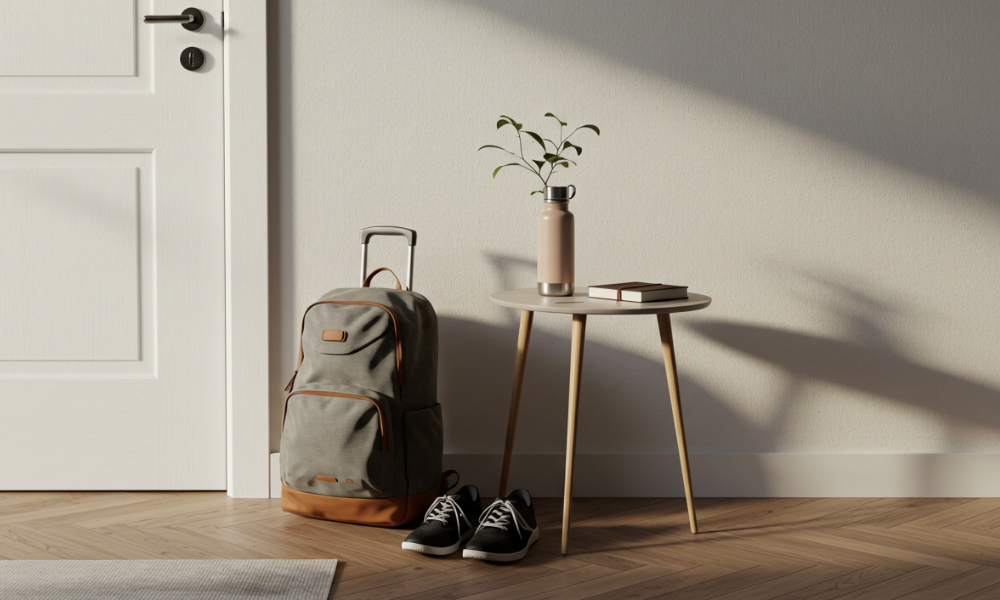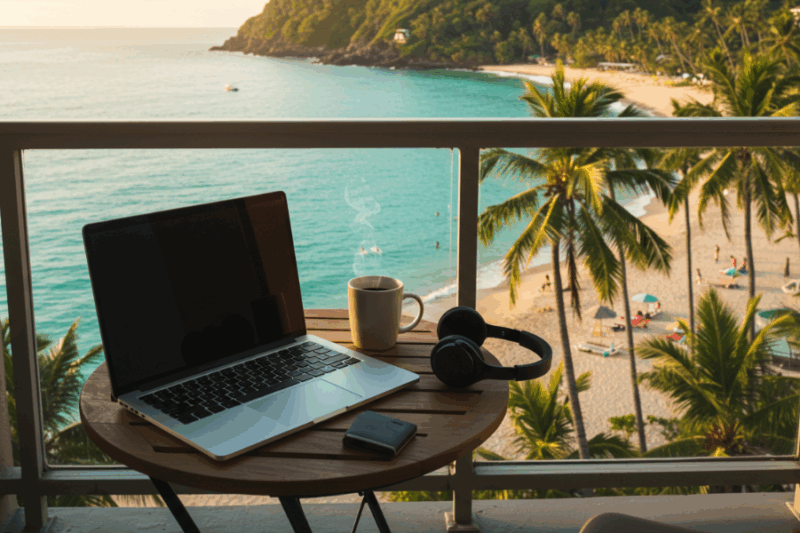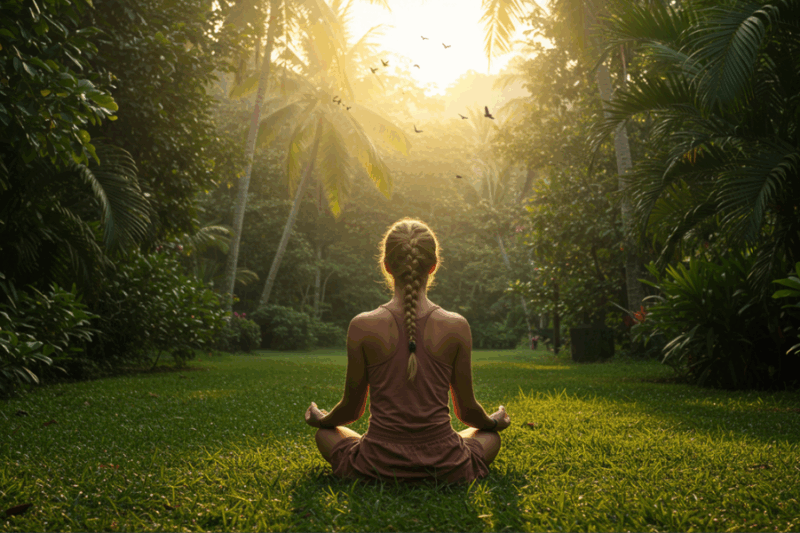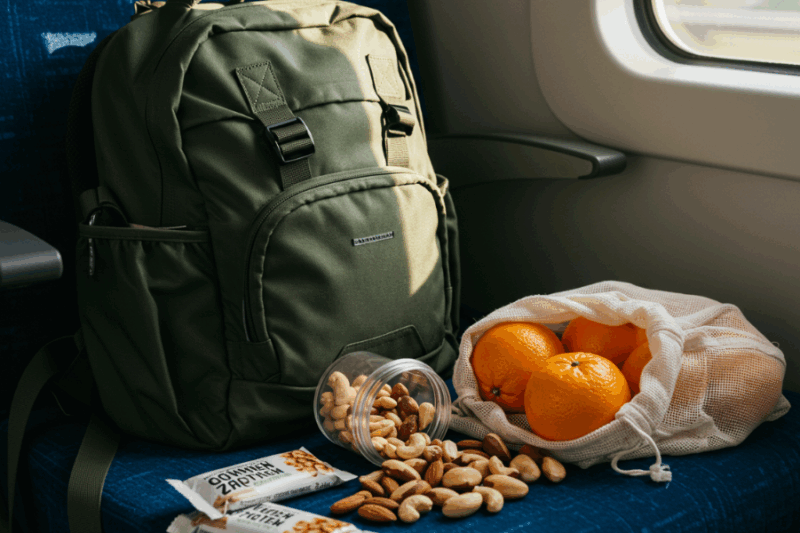Traveling can be exhilarating, but it often comes with stressors like missed flights, lost luggage, or cultural misunderstandings. By adopting simple lifestyle changes before and during your trips, you can minimize anxiety and maximize enjoyment. Here’s a guide to practical habits that make travel smoother and less stressful in 2025, tailored for all types of travelers.

1. Build a Flexible Mindset
Change: Practice adaptability in daily life to handle travel disruptions calmly.
- How: Start small at home by embracing minor inconveniences, like a delayed bus or a change in plans, without frustration. Try mindfulness exercises using apps like Headspace to stay present.
- Travel Impact: Flight delays or itinerary changes won’t derail your mood. You’ll pivot easily, like finding a local cafe during a layover instead of stressing.
- Tip: Keep a mental list of backup activities at your destination (e.g., a museum if it rains).
2. Streamline Your Packing Routine
Change: Adopt a minimalist packing habit year-round to make trip prep effortless.
- How: Declutter your wardrobe to versatile, mix-and-match items. Use a capsule wardrobe (e.g., 10-15 pieces) and practice packing for short trips. Store travel essentials (toiletry bag, adapters) in one place.
- Travel Impact: Packing takes hours, not days, reducing pre-trip stress. You’ll avoid overpacking, keeping luggage light (under 15 lbs for carry-ons) and dodging baggage fees.
- Tip: Use packing cubes and a checklist app like PackPoint to stay organized.
3. Improve Time Management
Change: Hone time management skills to avoid last-minute travel rushes.
- How: Plan daily tasks with tools like Todoist, leaving buffer time for unexpected delays. Practice arriving 10 minutes early for appointments to build punctuality.
- Travel Impact: You’ll arrive at airports or stations with time to spare (2 hours for domestic, 3 for international flights), reducing anxiety. No scrambling for boarding passes or security lines.
- Tip: Set reminders for check-in deadlines and keep travel documents in a digital wallet like Google Pay.
4. Enhance Physical Stamina
Change: Incorporate light exercise into your routine to boost energy for travel.
- How: Walk 20-30 minutes daily or do bodyweight exercises (squats, planks) 3 times a week. Stretch regularly to stay limber, using free YouTube yoga videos.
- Travel Impact: You’ll handle long walks in cities, heavy backpacks, or jet lag better. Physical resilience means more energy for exploring, like hiking in Lisbon or biking in Hanoi.
- Tip: Pack a resistance band for quick hotel room workouts on the road.
5. Practice Basic Language Skills
Change: Learn key phrases for your destination to ease communication stress.
- How: Use Duolingo or Memrise to learn 10-20 phrases (e.g., “hello,” “thank you,” “where’s the bathroom?”) over a month. Practice greetings or ordering food in local restaurants at home.
- Travel Impact: Simple phrases build confidence and goodwill, reducing anxiety in markets or taxis. Locals in places like Japan or Thailand appreciate the effort, making interactions smoother.
- Tip: Download Google Translate’s offline mode for real-time help.
6. Adopt a Digital-First Approach
Change: Organize travel documents and plans digitally for easy access.
- How: Store passports, tickets, and itineraries in a secure cloud app like Dropbox or Evernote. Use a password manager (e.g., LastPass) for booking logins. Practice navigating apps like Maps.me offline.
- Travel Impact: No fumbling for paper tickets or lost confirmations. Digital backups save time during check-ins or border crossings, and offline maps prevent getting lost.
- Tip: Keep a portable charger (10,000mAh) to stay powered up.
7. Cultivate Healthy Eating Habits
Change: Prioritize balanced eating to maintain energy and immunity.
- How: Eat more whole foods (fruits, veggies, lean proteins) at home and limit processed snacks. Carry reusable cutlery and a water bottle daily to build the habit.
- Travel Impact: You’ll resist heavy airport food, saving $5-10 per meal and avoiding energy crashes. Local markets (e.g., in Vietnam or Italy) become go-to spots for fresh, cheap eats.
- Tip: Pack nuts or protein bars for quick, healthy snacks during travel.
8. Strengthen Financial Discipline
Change: Build a habit of budgeting to avoid travel-related money stress.
- How: Track daily expenses with apps like YNAB or Mint. Set aside $50-100 monthly for a travel fund. Practice skipping small luxuries (e.g., coffee shop drinks) to save.
- Travel Impact: A clear budget (e.g., $30-50/day in Southeast Asia) prevents overspending. You’ll book affordable flights or hostels confidently, knowing your limits.
- Tip: Use a fee-free card like Revolut for foreign transactions to save on exchange rates.
9. Learn to Navigate Stress
Change: Develop stress-relief techniques to stay calm under pressure.
- How: Practice deep breathing (4-7-8 method) or journaling daily to process emotions. Try a 5-minute meditation routine with apps like Calm to manage anxiety.
- Travel Impact: You’ll handle missed connections or language barriers with ease. A quick breathing exercise in a crowded airport keeps you grounded.
- Tip: Carry a small notebook for jotting down thoughts or plans on the go.
10. Connect with Travel Communities
Change: Engage with travelers online to gain insights and confidence.
- How: Join forums like Reddit’s r/solotravel or Facebook groups for your destination. Ask one question weekly (e.g., “Best budget eats in Bangkok?”) and share tips.
- Travel Impact: Pre-trip advice reduces surprises, like knowing which scams to avoid or finding hidden gems. You’ll feel prepared and connected, easing solo travel jitters.
- Tip: Follow X accounts like Nomadic Matt for real-time travel hacks.
Why These Changes Work
These lifestyle shifts build resilience, organization, and adaptability, turning travel challenges into manageable moments. In 2025, with rising travel demand and tech advancements (e.g., AI-powered booking apps), these habits align with modern travel needs. They’re low-effort but high-impact, requiring just 10-20 minutes daily to implement.
Final Thoughts
Travel doesn’t have to be stressful with the right preparation. By embracing flexibility, minimalism, and small daily habits, you’ll navigate airports, foreign cities, and unexpected hiccups with ease. Start incorporating these changes now—whether walking more, budgeting smarter, or learning “arigatou”—to transform your next trip into a seamless adventure. Travel light, stay calm, and enjoy the journey!



